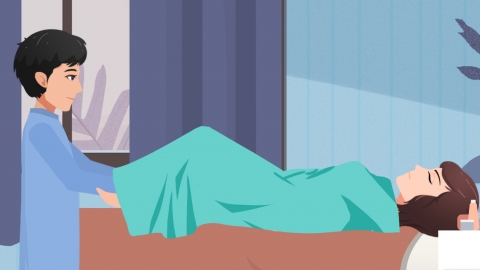What causes a thin uterus?
Generally, a thin uterus may be caused by factors such as aging, hormonal fluctuations, endometritis, intrauterine adhesions, and damage from multiple induced abortions. It is recommended to seek timely medical consultation to determine the exact cause, followed by symptomatic treatment under a physician's guidance. Detailed analysis is as follows:

1. Age increase: With advancing age, women experience gradual decline in ovarian function and reduced estrogen secretion. The endometrium loses hormonal support and becomes thinner, commonly seen in perimenopausal women. Regular gynecological examinations are recommended, along with daily consumption of foods rich in phytoestrogens such as soybeans and black beans, and maintenance of regular sleep patterns to avoid excessive fatigue.
2. Hormonal fluctuations: Long-term mental stress and irregular sleep patterns can lead to endocrine disorders and imbalances in estrogen and progesterone secretion, which affect endometrial growth and result in a thin uterus. Lifestyle adjustments and emotional stability are recommended. If necessary, follow medical advice to use medications such as estradiol valerate tablets, progesterone capsules, or estradiol cyproterone acetate tablets to regulate hormones.
3. Endometritis: Infection of the endometrium by pathogens such as bacteria causes inflammation, damaging endometrial tissue and leading to thinning of the uterus. Symptoms often include lower abdominal pain and abnormal vaginal discharge. Patients may follow medical advice to use antibiotics such as cefixime dispersible tablets, metronidazole tablets, or levofloxacin hydrochloride capsules to control the infection.
4. Intrauterine adhesions: Adhesions may develop after endometrial injury, reducing the surface area and thickness of the endometrium, potentially accompanied by decreased menstrual flow or amenorrhea. Patients should undergo hysteroscopic adhesion lysis under medical guidance to separate the adhesions. Postoperative treatment may include medications like estradiol valerate tablets, progesterone soft capsules, and aspirin enteric-coated tablets to promote endometrial repair.
5. Repeated post-abortion surgical injuries: Repeated induced abortions involve multiple刮宫 procedures that damage the basal layer of the endometrium, making it difficult to regenerate and resulting in a thin uterus. Long-term postoperative regulation is required, following medical advice to use medications such as estradiol valerate tablets, conjugated estrogens tablets, or progesterone gel to promote endometrial regeneration.
In daily life, maintaining a balanced diet with adequate protein and vitamin intake is important. Avoid raw, cold, and spicy foods. Engage in mild exercises such as walking to enhance physical fitness and aid in improving uterine health.





